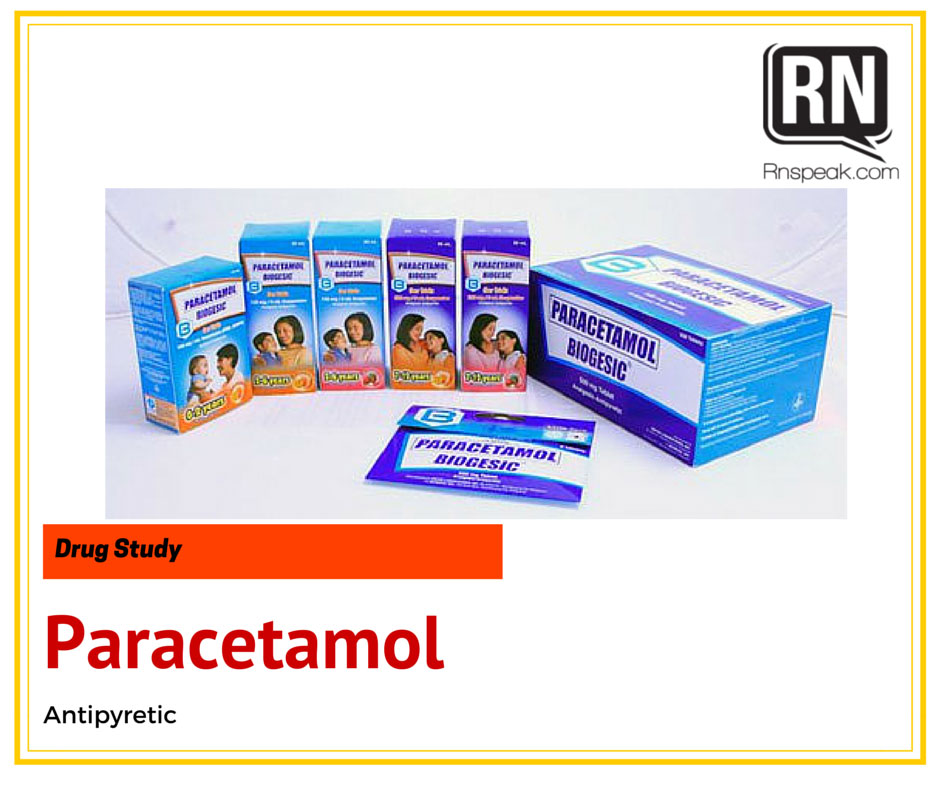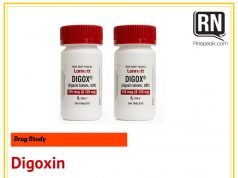Generic Name: Paracetamol, Acetaminophen
Brand Name: Biogesic, Panadol, Tylenol
Classification: Non-narcotic analgesic, Antipyretic
Uses
- Control of pain due to headache, earache, dysmenorrhea, arthralgia, myalgia, musculoskeletal pain, arthritis, immunizations, teething, tonsillectomy
- O reduce fever in viral and bacterial infections.
- As a substitute for aspirin in upper GI disease, bleeding disorders, clients in anticoagulant therapy and gouty arthritis
Actions
- Decreases fever by a hypothalamic effect leading to sweating and vasodilation
- Inhibits pyrogen effect on the hypothalamic-heat-regulating centers
- Inhibits CNS prostaglandin synthesis with minimal impact on peripheral prostaglandin synthesis
- It does not cause ulceration of the GI tract and causes no anticoagulant action.
Contraindications
- Renal Insufficiency
- Anemia
Special Concerns
- Liver toxicity (hepatocyte necrosis) may occur with doses not far beyond labeled dosing.
- If three or more alcoholic drinks per day are consumed, consult a physician prior to use.
Side-Effects
- Minimal GI upset.
- Methemoglobinemia
- Hemolytic Anemia
- Neutropenia
- Thrombocytopenia
- Pancytopenia
- Leukopenia
- Urticaria
- CNS stimulation
- Hypoglycemic coma
- Jaundice
- Glissitis
- Drowsiness
- Liver Damage
Dosage
Per Orem: 325-650mg q4h up to a maximum of 1 gram q6h.
Suppositories: 650mg q4h not to exceed 4 grams a day for up to 10 days.
Nursing Considerations
- Do not exceed 4gm/24hr. In adults and 75mg/kg/day in children.
- Do not take for >5days for pain in children, ten days for pain in adults, or more than three days for fever in adults.
- Extended-Release tablets are not to be chewed.
- Monitor CBC, liver, and renal functions.
- Assess for fecal occult blood and nephritis.
- Avoid using OTC drugs with Acetaminophen.
- Take with food or milk to minimize GI upset.
- Report N&V. cyanosis, shortness of breath, and abdominal pain as these are signs of toxicity.
- Report paleness, weakness, and heartbeat skips
- Report abdominal pain, jaundice, dark urine, itchiness, or clay-colored stools.
- Phenmacetin may cause urine to become dark brown or wine-colored.
- Report pain that persists for more than 3-5 days
- Avoid alcohol.
- This drug is not for regular use with any form of liver disease.








